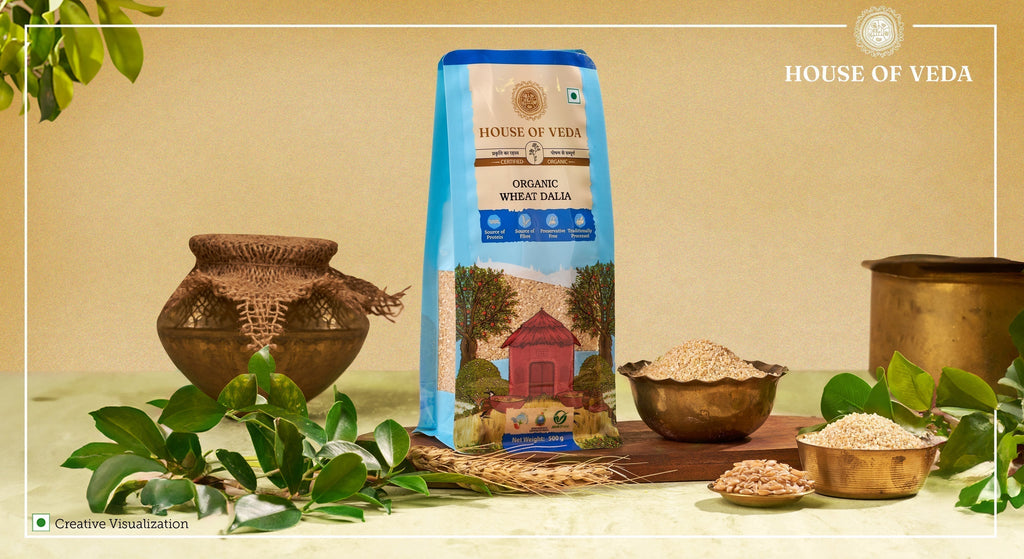
World Health Day- Importance of Ayurveda for Healthy Conscious Living

Every year on April 7th, the World Health Organization (WHO) celebrates World Health Day, highlighting a specific theme related to global health concerns. This year's theme, "My Health, My Right," emphasizes the intricate link between human well-being and the duty to maintain optimal health. Ayurveda has always championed this very connection. This blog post explores the role of Ayurveda in world health to live a healthy and conscious life, aligning perfectly with the spirit of World Health Day.
The Importance of World Health Day
Good health is the foundation of a happy, productive life. It affects everything from our energy levels to our ability to work and learn. But health challenges don't respect borders. A disease outbreak in one part of the world can quickly spread to others.
World Health Day shines a light on these global health concerns. It brings together governments, healthcare workers, and everyday people to discuss solutions and promote healthy habits.
Introduction to Ayurveda
Ayurveda goes beyond treating illness; it promotes overall balance and prevents disease. It believes our health hinges on three mind-body energies called doshas: Vata, Pitta, and Kapha.
Ayurvedic practices encompass a wide range of techniques. These include dietary modifications tailored to your dosha, herbal remedies, massage therapy, and yoga. Ayurveda offers a wealth of knowledge for those seeking a natural approach to well-being. Whether you're looking to boost energy, improve digestion, or manage stress, Ayurveda health awareness can be an excellent addition to your knowledge.
Concept of Healthy Living in Ayurveda
Physical Health
Ayurveda recognizes that our bodies comprise five elements: space, air, fire, water, and earth. These combine to form three vital energies. These doshas control the physical and mental well-being. Maintaining a balance between these doshas is critical to good health.
Mental Health
Just as it cares for the body, Ayurveda recognizes the importance of a healthy mind. Practices like meditation and mindfulness help cultivate inner peace and clarity. Developing a positive outlook and fostering healthy relationships are crucial for mental well-being.
Eat At Regular Times
In Ayurveda, digestion is considered as the main element of good health. Eating consistently throughout the day allows your digestive fire (Agni) to function optimally. This means aiming for breakfast soon after waking, lunch around midday, and a lighter dinner a few hours before bedtime. Sticking to a regular schedule helps your body anticipate meals, leading to better nutrient absorption and improved digestion.
Use of Organic Grocery
Ayurveda emphasizes the importance of consuming organic grocery items. Organic foods are free from synthetic preservatives and fertilizers, potentially reducing exposure to harmful chemicals. While organic options might cost slightly more, they offer the benefit of consuming food in its purest form, promoting overall well-being.
Use of Organic cooking oils
Fats play a vital role in the diet, and Ayurveda emphasizes using healthy cooking oils. Opt for organic oils like sesame, coconut, or ghee (clarified butter) for their health benefits. Sesame oil is known for its grounding properties, while coconut oil offers healthy fats. Ghee is easily digested and promotes a balanced gut. Avoid refined vegetable oils, which can disrupt digestion according to Ayurvedic principles.
Eat According to Your Dosha
Ayurveda recognizes three mind-body types, or doshas, each with unique dietary needs. Vata individuals benefit from warm, grounding foods like soups and stews. Pitta types thrive on cooling and easily digestible meals like vegetables and yogurt. Kapha doshas do well with lighter meals that incorporate spices to stimulate digestion. Understanding your dosha and tailoring your food choices can bring more excellent balance to your health.
Traditional Cooking Methods
Modern life often relies on quick and convenient cooking methods. There is a need for Ayurveda practices for a healthy life. However, Ayurveda emphasizes the benefits of traditional methods like boiling, simmering, and steaming. These gentle cooking techniques preserve the nutrients and natural flavors of your ingredients. Additionally, slow cooking allows for better digestion, leading to a more balanced gut.
Conclusion:Upgrade Your Organic Grocery With House of Veda
Are you looking to elevate the quality of your standard kitchen ingredients and give them a healthy touch without compromising on the taste? House of Veda has just the solution for you. We offer a curated selection of organic essentials, from wholesome organic pulses like lentils and chickpeas to revitalizing organic teas for a touch of serenity.
Embrace a balanced, Ayurvedic lifestyle with our products. Shop our online store today and experience the difference of organic products in your kitchen.
FAQs
1.What is the role of Ayurveda in world health?
Ayurveda offers a natural way to maintain health by promoting natural remedies and preventive care. The World Health Organization (WHO) recognizes its potential to complement modern medicine.
2.What is the importance of World Health Day?
World Health Day, celebrated on April 7th, raises awareness about a specific health issue. It's a chance to advocate for global health improvements and inspire action.
3.What is the role of Ayurveda in a healthy life?
Ayurveda emphasizes balance and focuses on diet, lifestyle practices, and herbal remedies to promote overall health and prevent disease.
4.What is the theme of the World Health Day Ayurveda?
The specific theme for World Health Day and Ayurveda might vary each year. However, it generally focuses on promoting the role of Ayurveda in global health.
How is World Health Day Observed?
World Health Day is observed through various events and activities. These can include educational campaigns, health screenings, workshops on healthy living practices, and discussions on the year's specific health theme.
House of Veda stands by the V-E-D-A principles. Every blog we write and every product we offer is built on Verified Experience and Expertise. We are committed to Dependability and Authenticity, ensuring that our community receives nothing but the best in organic wellness."
"V-E-D-A" (Experience, Dependability, Authority, and Authenticity)













